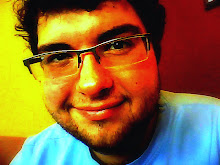Mathematics is intriguing in the way of a hungry tiger or a violently raging river rapid. It has never been something I would like to spend my life (or even more than a moment at a time) getting to know intimately. It is an area to which people have devoted their fullest potential. Some of my friends and family members are mathematicians. They can take apart complex issues of engineering and logic like scalpel-wielding oncologists extracting cancer cells from healthy tissue. I, on the other hand, am more like an ill-tempered ape with a TI-83 graphing calculator; the tools are there along with the basic ability, but much beyond the Pythagorean theory of finding a right triangle’s hypotenuse, I am at a loss. Why, then, do I even know who Pythagoras was? Why does my sister hold a degree in physics? Society forms and moves the individual mind in concert with the mind’s innate predilections.
In The Metaphysical Club, Menand tracks the emergence of the Law of Errors as it affected the thought lives of people in the nineteenth century. For instance, Pierre-Simon Laplace saw the Law of Errors as a way to reach further and further toward the likeliest solution to a problem by judging with a sample large enough to create the bell curve of a mean. As Laplace began to apply this to human activities, the implication that society was predictable lent itself to the philosophical outlook of determinism (186). If Laplace’s determinism is to be taken to its fullest, everything is necessarily a result of factors that are in motion long before their fruition and not much can be done to change them. However, this does not hold in the face of events that are highly improbably but altogether possible. Menand’s given example is that of drawing the desired card from a shuffled deck. This interpretation of Darwinian evolution makes it entirely possible that the universe is not predetermined (199). Society, in this case, would follow laws and the rules that normally govern. Except when it doesn’t. In fact, this Darwinian randomness is that which allows for the improbable mutation to lead to the newest branch of academia, society, economy, and , oh yes, speciation in the natural world.
This randomness, the biological hypothesis cum social theory cum philosophical outlook, is an interesting way to explain why the math classes my sister took were a boon to her intellectual well-being, yet I made it through my requirements with mediocre grades and a matching dispassion for the subject. Genetics, curricula, socio-economic status being basically the same, the randomness of my sister’s and my divergence in the realm of the protractor is a way of looking at the mutation of what might have been into what actually is. Now, as I look back with a bit of appreciation for mathematics, I see how I did not win the lottery. Perhaps, though, I did. Perhaps the situation is not success versus failure, but success of a kind applied differently per condition. Randomness, then, is not whether I succeed or fail at differential equations—I fail, if you’re curious—but in which areas I succeed and in which areas success is withheld from me. Without attributing some selective power to God or the cosmos, (it would be positively un-Darwinian) it is safe to say that everyone cannot succeed simultaneously in the same area. Or, it is statistically highly improbable, at least.

No comments:
Post a Comment